A Levels – Get Off To A Good Start

Starting A Levels this September? Here’s our guide to getting off to a good start
Starting A-levels
Starting A-levels can be daunting – especially if you don’t know what to expect and are worried about the sudden increase in workload. Whilst it’s a fact that A-levels are harder than GCSE (they wouldn’t be A-levels otherwise) they shouldn’t be about struggling on your own. Here are some tips to make sure you stay on top of coursework.
Be organised
There’s a big jump between GCSE and A-level coursework so you’ll need to be organised. Work can quickly pile up. Investing in a diary or making sure you regularly update any electronic calendars is a must to keep track of assignment deadlines.
It’s also a good idea to keep all your course notes in one dedicated folder for each subject – that way you’ll know exactly where everything is (it’s also wise to date all your work too).
If you’ve missed any handouts make sure you ask your teacher for copies – you’ll be glad of them later when it comes to revising.
Free periods are anything but
Whether you’re at a sixth form attached to a school or an independent college, one of the big differences is the amount of freedom you have at A-level – but that’s not an excuse to slack.
A-levels play a big part in not only getting you to university but preparing you for the independent studying you’ll be expected to do there. That means ‘free’ periods on your timetable aren’t really free at all and you’ll be expected to use this time to complete assignments or research the topics you’re studying.
The onus is definitely on you when it comes to A-levels, after all, you did choose these subjects so in theory you should want to study them – and that means you need to be committed.
Believe in yourself and don’t be intimidated
When you first start A-levels, it’s perfectly natural to feel a bit jittery about all the work and the expectation that goes with it. But remember – you’ve earnt the right to be in that class by studying hard at GCSE and your achievements are just as good as anyone else’s, so don’t feel intimidated if you think other people are smarter than you.
With that in mind, if you don’t understand something – ask. Chances are you won’t be the only person that needs clarification – so be the one that’s brave enough to say so.
Knowing what you want at the end of it all can help motivate you through your A-levels. If you’ve your eye on a university place with a conditional offer – keep this in mind.
Teachers are a valuable resource
At A-level, your teachers aren’t just there to teach, they’re there to guide and inspire you too. Remember, they are experts in their subject field. They can advise you on valuable sources of additional material. They also have experience steering countless other students through the same course and exams. So tap into their knowledge and expertise.
Take a break and look after yourself
There’s no denying that A-levels are hard work – but that doesn’t mean you have to give up on fun. The average attention span is just 14 minutes so studying for too long will just result in your mind wandering. Regular breaks will keep you fresh and focused on the task at hand. So don’t assume burying your head in books for 12 straight hours is actually doing you any good.
It’s also important to eat well and some foods are renown for their memory boosting effects. These include fish rich in mega-3 (like salmon), blueberries, and dark chocolate. On a practical note, eating properly should help stave off any viruses doing the rounds so you don’t miss any classes.
As well as looking after your physical health, your mental wellbeing is also incredibly important too. A-levels are demanding and that can lead to stress. Going out with friends and having a good social life is a great way to let off steam.
Ultimately, what you need is a balance between work and play. It’s worth remembering that too much of one and none of the other isn’t going to get you very far.
Fulfil your potential
The Community Schools, is all about helping students reach their full potential and our tutorials are tailored to the needs of individuals. If you feel you need extra help and would benefit from small group, or individual study sessions, then contact us. Find out more about our support for A levels by clicking here.
Good luck with the year ahead!
Claire and the team
Last Updated on December 7, 2021
